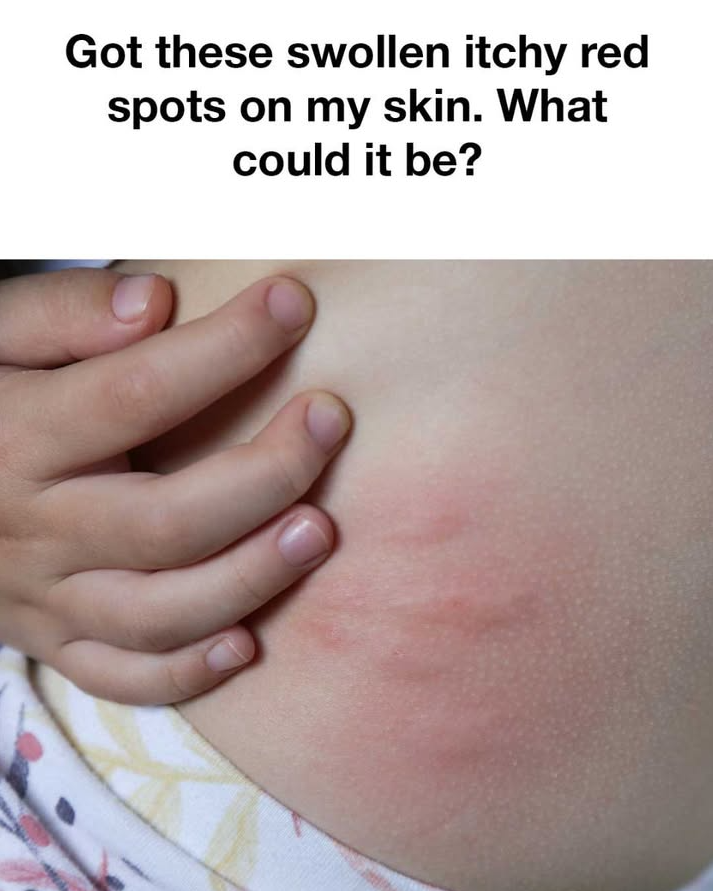
Why Skin Reactions Can’t Be Ignored
Few things are more frustrating than discovering swollen, red, and itchy spots on your skin. They’re uncomfortable, often unsightly, and can leave you wondering what triggered them in the first place. Sometimes it’s a minor irritation that fades quickly, while other times it’s a signal of something more serious. Understanding the possible causes and how to respond is the first step to finding relief and protecting your skin’s health.
Common Causes of Swollen Red Itchy Spots
Swollen, itchy spots don’t appear out of nowhere. They’re usually the body’s way of reacting to something—whether it’s an allergen, a bug bite, or an infection. Let’s break down the most frequent culprits.
Understanding Allergic Reactions
Allergic reactions happen when your immune system goes into overdrive against a harmless substance, also known as an allergen. Pollen, pet dander, certain foods, and medications are classic triggers. The reaction often appears as hives—raised, red welts that itch like crazy. Managing allergies typically involves avoiding known triggers, using antihistamines, and in more severe cases, consulting a doctor for prescription treatments.
Insect Bites and Their Effects
Bug bites are a universal nuisance. Mosquitoes, fleas, and bedbugs all inject saliva into the skin when they bite, which leads to localized swelling, redness, and itching. Most bites are harmless but irritating. Relief often comes from anti-itch creams, cold compresses, and resisting the urge to scratch. In rare cases, bites can lead to allergic reactions or infections if the skin breaks.
Skin Infections and Rashes
Not all red, itchy spots are from allergies or bites—sometimes an infection is to blame. Bacterial conditions like impetigo, viral rashes such as shingles, or fungal infections like ringworm can all cause inflamed skin. Treatment usually requires medication, whether it’s a topical antifungal, an oral antibiotic, or an antiviral cream. Without proper treatment, infections can worsen, so timely action is key.
Chronic Skin Conditions That Flare Up
For some people, red and itchy spots are part of a larger, ongoing battle with chronic conditions. Eczema often brings dry, inflamed patches that itch intensely, while psoriasis shows up as raised, scaly plaques that can crack or bleed. These conditions usually need long-term management through moisturizers, prescription creams, and lifestyle adjustments to keep flare-ups under control.
Video : 22 Skin Rashes Everyone Should Know About: Symptoms & Treatments
Environmental Factors and Irritants
Your environment may be doing more harm than you realize. Harsh weather, pollution, strong detergents, or chemicals in beauty products can irritate the skin and cause flare-ups. Even frequent hand-washing with drying soaps can trigger redness and itching. Using gentle, fragrance-free skincare products and protective clothing can minimize these effects.
When to Seek Medical Advice
Most skin irritations aren’t life-threatening, but some require professional attention. See a doctor if:
- The rash spreads rapidly or worsens.
- You develop fever, chills, or difficulty breathing.
- Blisters, pus, or open sores form.
- Home remedies don’t bring relief after several days.
A dermatologist or healthcare provider can run tests, prescribe medications, and pinpoint the exact cause of your skin issue.
Diagnosis and Testing Procedures
To get to the root of your skin problem, doctors may use:
- Physical exams to check the appearance and location of the rash.
- Allergy testing to find triggers.
- Blood tests to detect underlying conditions.
- Skin biopsies in more complex cases.
These tests help ensure you’re not just masking symptoms but addressing the true cause.
Treatment Options and Remedies
Treatment depends on what’s behind the rash. Some common approaches include:
- Antihistamines for allergy-related hives.
- Topical creams (hydrocortisone or calamine) for bites and irritation.
- Antibiotics, antifungals, or antivirals for infections.
- Moisturizers and medicated creams for eczema or psoriasis.
- Home remedies like oatmeal baths, cool compresses, or aloe vera to soothe itching.
Consistency is key—skipping treatment often leads to recurring flare-ups.
Preventive Measures and Skin Care Tips
Keeping skin healthy and irritation-free isn’t just about reacting—it’s about prevention. Simple habits go a long way:
- Moisturize daily to lock in hydration.
- Use hypoallergenic, fragrance-free products.
- Stay hydrated by drinking enough water.
- Protect your skin from extreme weather and harsh sun.
- Avoid scratching—it worsens irritation and can cause infection.
- Identify and avoid personal triggers whenever possible.
Video : Skin Rash, Causes, Signs and Symptoms, Diagnosis and Treatment.
Conclusion: Taking Control of Skin Health
Swollen, red, itchy spots can be annoying or alarming, but they’re usually manageable once you identify the cause. From allergies and bug bites to chronic conditions and infections, each has its own treatment path. The key is knowing when to try at-home care and when to call a doctor. With the right mix of prevention, treatment, and attention, you can calm your skin, ease discomfort, and keep flare-ups from stealing your peace of mind.


